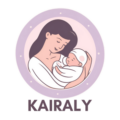As a mom who’s been through the postpartum journey, I know firsthand how overwhelming those first few weeks after childbirth can be. Having the right essentials on hand made a world of difference in my recovery and helped me focus on bonding with my newborn.
From soothing personal care items to practical nursing supplies, I’ve learned that being prepared with postpartum essentials isn’t just helpful – it’s crucial for a smoother recovery. After supporting countless new moms through their fourth trimester, I’ve compiled a comprehensive list of must-have items that’ll help you heal, rest and adjust to your new role. Whether you’re a first-time mom or adding to your family, these essentials will help you navigate the postpartum period with greater comfort and confidence.
Key Takeaways
- The fourth trimester (first 12 weeks after birth) is crucial for both mother’s recovery and baby’s adjustment, with specific physical healing milestones occurring throughout this period
- Essential postpartum supplies include pain relief items (ice packs, sitz baths), personal care products (maternity pads, mesh underwear), and nursing supplies (breast pumps, nursing bras) to support recovery
- Proper nutrition is vital during postpartum recovery, focusing on iron-rich foods, protein sources, and adequate hydration (16 cups of water daily) to support healing and milk production
- Safe physical activity should be gradually introduced, starting with gentle exercises like diaphragmatic breathing and pelvic floor contractions before progressing to more intense activities
- Creating a strong support system with partner involvement and professional resources (lactation consultants, postpartum doulas) significantly improves recovery outcomes
Postpartum Care Essentials
The fourth trimester marks the critical 12-week period after childbirth when both mother and baby adapt to life outside the womb. I’ve witnessed countless mothers navigate this transformative phase while supporting their physical recovery and emotional well-being.
Physical Recovery Timeline
The postpartum body undergoes specific healing stages during the fourth trimester:
- Week 1-2: Immediate physical changes include uterine shrinking, lochia discharge reduction and initial wound healing
- Week 3-4: Breast engorgement stabilizes, afterpains decrease and external healing becomes visible
- Week 5-8: Internal healing continues, hormone levels begin normalizing and energy levels improve
- Week 9-12: Core strength returns gradually, pelvic floor function enhances and physical stamina increases
| Recovery Milestone | Typical Timeline |
|---|---|
| Uterus Returns to Pre-Pregnancy Size | 6-8 weeks |
| C-Section Incision Healing | 4-6 weeks |
| Vaginal Recovery | 3-4 weeks |
| Breast Milk Production Regulation | 6-12 weeks |
Emotional Changes After Birth
Postpartum emotions fluctuate due to hormonal shifts and life adjustments:
- Days 1-5: Baby blues peak with mood swings, tearfulness and overwhelming feelings
- Week 1-3: Heightened sensitivity emerges alongside intense bonding emotions
- Week 4-8: Sleep deprivation impacts emotional regulation and adjustment stress surfaces
- Week 9-12: New identity development occurs while establishing routines and coping mechanisms
- Persistent sadness lasting more than 2 weeks
- Intrusive thoughts about harm
- Severe anxiety or panic attacks
- Disconnection from baby or family members
- Changes in eating or sleeping patterns beyond normal adjustment
Essential Postpartum Self-Care Items
Based on my experience supporting new mothers, I’ve identified key postpartum care essentials that promote healing and comfort during the fourth trimester recovery period. Here’s a comprehensive breakdown of must-have items organized by category.
Pain Relief and Healing Supplies
Postpartum pain management requires specific medical supplies to support the healing process:
- Perineal ice packs (3-4) for reducing swelling and discomfort
- Sitz bath with epsom salts for promoting healing of the perineal area
- Over-the-counter pain relievers approved by your healthcare provider
- Witch hazel pads (2-3 boxes) for soothing sensitive areas
- Post-birth recovery cream containing natural healing ingredients
- Peri bottle for gentle cleaning during bathroom visits
- Donut pillow for comfortable sitting during recovery
Personal Care Products
These essential personal care items support hygiene and comfort:
- Heavy-flow maternity pads (2-3 packages) for postpartum bleeding
- Mesh underwear (6-8 pairs) for secure pad placement
- Loose-fitting cotton clothing for comfort and accessibility
- Dry shampoo for quick hair refreshing between showers
- Face wipes for quick cleansing during rest periods
- High-waisted compression underwear for C-section support
- Gentle cleansing products free from harsh chemicals
Nursing and Lactation Support
Breastfeeding mothers benefit from these specific supplies:
| Essential Item | Recommended Quantity |
|---|---|
| Nursing bras | 3-4 bras |
| Breast pads | 2-3 boxes |
| Nipple cream | 1-2 tubes |
| Nursing pillow | 1 pillow |
| Breast pump | 1 electric pump |
| Storage bags | 50-100 bags |
| Water bottle | 32oz capacity |
- Silicone milk collectors for catching letdown
- Nursing covers for privacy when feeding
- Hot/cold therapy packs designed for breast comfort
- Quick-access nursing tops or button-down shirts
- Manual hand pump for emergency backup
Recovery and Rest Priorities
Postpartum recovery demands prioritizing rest and accepting support to promote physical healing and emotional well-being. I’ve identified key strategies that enable new mothers to maximize their recovery period while adapting to their new role.
Sleep Management Tips
Sleep patterns align with the baby’s schedule during postpartum recovery. I recommend:
- Sleeping when the baby sleeps, even during daytime naps
- Creating a dark sleep environment with blackout curtains
- Using white noise machines to minimize disrupting sounds
- Setting up a bedside bassinet for easier nighttime feedings
- Arranging feeding supplies within arm’s reach
- Keeping a dim night light for midnight diaper changes
- Creating a visitor schedule that doesn’t interfere with rest periods
- Delegating household tasks like laundry, cooking and cleaning
- Accepting prepared meals from friends and family
- Hiring postpartum support services when possible
- Communicating specific needs clearly to helpers
- Allowing trusted family members to watch the baby while resting
- Using grocery delivery services to maintain household supplies
- Asking experienced mothers for guidance and support
Postpartum Nutrition and Hydration
Proper nutrition plays a vital role in postpartum recovery, supporting healing, energy levels and milk production for breastfeeding mothers. Based on my experience supporting new mothers, I’ve identified key nutritional strategies that optimize postpartum wellness.
Best Foods for Recovery
Iron-rich foods replenish blood loss after delivery, including:
- Lean meats: Grass-fed beef, chicken thighs, turkey
- Leafy greens: Spinach, kale, Swiss chard
- Legumes: Black beans, lentils, chickpeas
Protein-packed options promote tissue repair:
- Eggs with the yolk intact
- Greek yogurt with 15+ grams protein
- Wild-caught salmon rich in omega-3s
- Quinoa containing all 9 essential amino acids
Galactagogues support milk production:
- Oatmeal topped with flaxseed
- Fennel added to salads
- Fenugreek tea steeped for 5 minutes
- Brewer’s yeast mixed into smoothies
Meal Planning Strategies
Time-saving meal prep methods include:
- Batch cooking 2-3 meals every 3 days
- Storing individual portions in freezer-safe containers
- Setting up a meal train with friends bringing food
- Keeping protein bars near feeding stations
Easy one-handed snack options:
- Trail mix with nuts, dried fruit, dark chocolate
- Hard-boiled eggs prepared in advance
- Cut vegetables with single-serve hummus cups
- Greek yogurt with granola packets
- Fill a 32oz water bottle each nursing session
- Set hourly drink reminders on phone
- Keep water bottles at common sitting spots
- Track intake with water tracking apps
- Add fruit slices for natural flavor
| Nutrient | Daily Target | Food Sources |
|---|---|---|
| Protein | 71g | Eggs, yogurt, lean meats |
| Iron | 27mg | Red meat, spinach, beans |
| Calcium | 1000mg | Dairy, fortified foods |
| Water | 16 cups | Water, herbal tea, broths |
Physical Activity and Movement
Postpartum physical activity promotes healing, reduces discomfort, and supports mental well-being. I’ve learned through personal experience and discussions with healthcare providers that gentle movement during the recovery period leads to better outcomes.
Safe Postpartum Exercises
Early postpartum exercises focus on gentle movements that support healing and prevent complications. Here are specific exercises that promote recovery:
- Practice diaphragmatic breathing to reconnect with core muscles
- Perform pelvic floor contractions (Kegels) 3 times daily with 10 repetitions
- Walk short distances indoors for 5-10 minutes during the first week
- Complete gentle stretches targeting neck, shoulders, and back muscles
- Try wall pushups to maintain upper body strength without straining
- Engage in pelvic tilts while lying on your back
- Progress to short outdoor walks after medical clearance
When to Resume Regular Activities
The timeline for returning to regular activities depends on delivery type and individual healing progress:
| Activity Type | Vaginal Delivery | C-Section Delivery |
|---|---|---|
| Light housework | 1-2 weeks | 4-6 weeks |
| Driving | 1-2 weeks | 2-3 weeks |
| Swimming | 4-6 weeks | 6-8 weeks |
| Running/High impact | 12+ weeks | 12+ weeks |
| Weight training | 6-8 weeks | 8-12 weeks |
- Absence of vaginal bleeding or discharge
- No pain during basic movements
- Proper healing of incisions or tears
- Medical clearance from healthcare provider
- Ability to engage core muscles effectively
- Restored pelvic floor strength
Creating a Support System
A robust support system enhances postpartum recovery by providing practical assistance emotional support during the fourth trimester. Here’s how to build a reliable network of support.
Partner Involvement
Partner support creates a foundation for successful postpartum recovery through shared responsibilities. I recommend establishing clear communication about:
- Dividing nighttime feedings to ensure both parents get adequate rest
- Managing household tasks like laundry cleaning meal preparation
- Scheduling shifts for baby care allowing each partner dedicated sleep time
- Creating designated bonding times for the non-birthing partner with the baby
- Coordinating appointment schedules for pediatrician visits postpartum checkups
- Lactation consultants for breastfeeding support troubleshooting
- Postpartum doulas who provide in-home care education
- Mental health professionals specializing in postpartum mood disorders
- Physical therapists focusing on pelvic floor rehabilitation
- Support groups connecting new parents in similar situations
- Night nurses or baby nurses for overnight infant care assistance
| Professional Resource | Typical Cost Range (US) | Recommended Timeline |
|---|---|---|
| Lactation Consultant | $150-300/session | First 2-4 weeks |
| Postpartum Doula | $25-50/hour | First 6-12 weeks |
| Physical Therapist | $100-200/session | 6-8 weeks post-birth |
| Support Groups | $0-25/session | Ongoing |
Physical Healing
Having the right postpartum care essentials can make a world of difference in your recovery journey. I know firsthand that preparing for this transformative period is just as important as getting ready for birth itself. From physical healing supplies to emotional support resources I’ve outlined everything you’ll need to navigate the fourth trimester confidently.
Remember that every mother’s journey is unique and there’s no one-size-fits-all approach to postpartum care essentials. I encourage you to customize these recommendations based on your specific needs and circumstances. Most importantly don’t hesitate to reach out for help when you need it – your well-being matters and you deserve all the support you can get during this special time.

